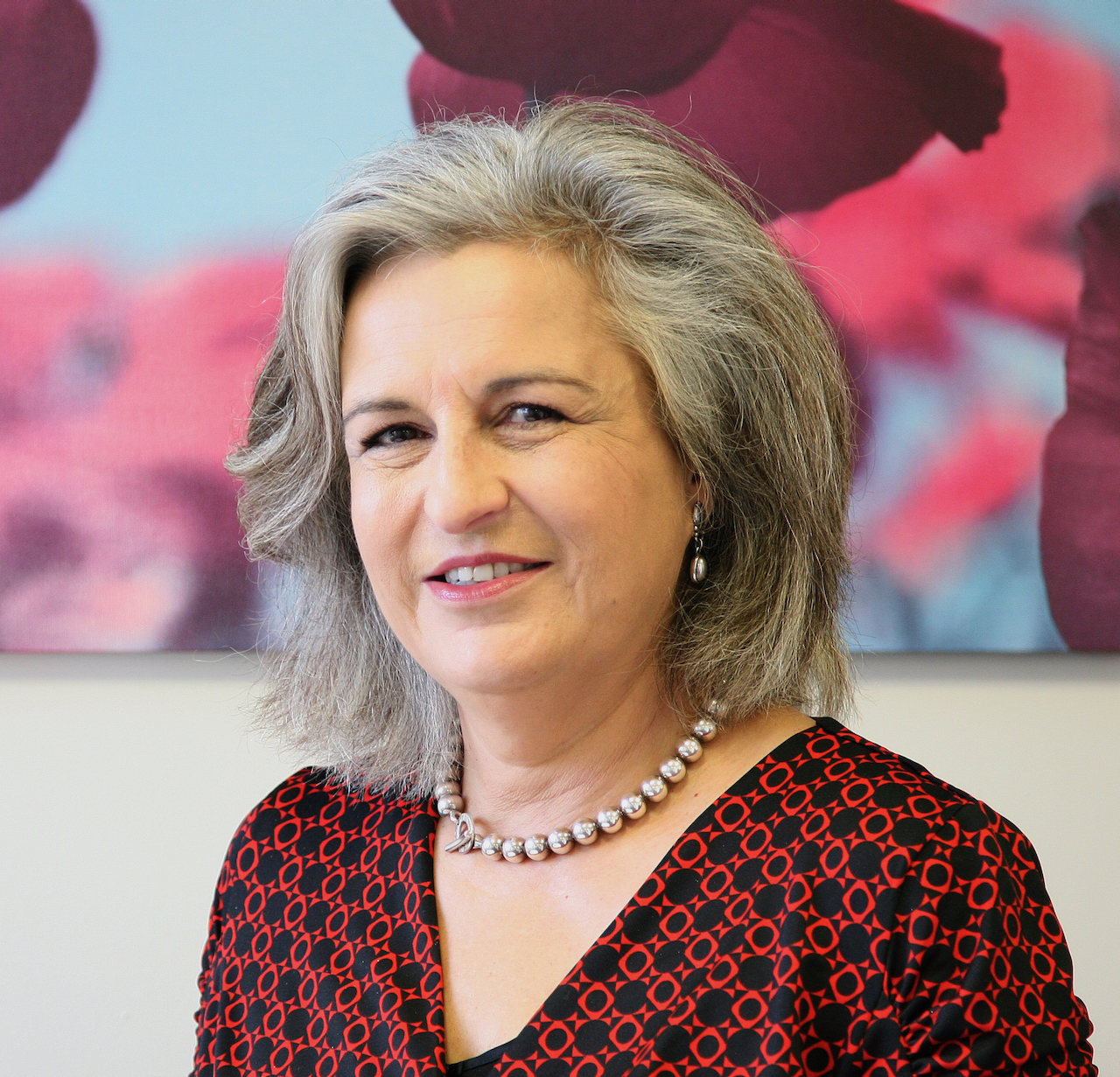Elizabeth Casson was remarkable individual and her memory is kept alive with the Elizabeth Casson Memorial Lecture each year, as well as being embodied in the work of the Elizabeth Casson Trust.
This prestigious annual lecture is in honour of Dr Elizabeth Casson and her contributions and commitment to the occupational therapy profession. The lectureship is awarded to an individual who is considered by their peers to have made and be making significant contributions to the profession’s development.
…And yet, when people are asked if they could deliver this, we’re told a range of emotions runs through them from astonishment to “what will I say??”, from terror and panic to pride. How could this be? Where do these emotions come from when you’ve just been selected by your peers and RCOT for this accolade? Perhaps a look at Elizabeth Casson might give us an inclination.
Dr Elizabeth Casson was not an occupational therapist herself, however she was a doctor of medicine who specialized in psychiatry and recognized the value and therapeutic benefit of occupation for good health: she had the compassion for her patients to seek out new intervention approaches and the leadership to bring occupational therapy to England. But it isn’t this alone that sets her apart; it’s also that she had the commitment and vision for the future of the profession to set up the Elizabeth Casson Trust. Elizabeth Casson was remarkable individual and her memory is kept alive with the RCOT Elizabeth Casson Memorial Lecture each year, as well as being embodied in the work of the Elizabeth Casson Trust.
During the course of summer 2020, a conversation between Prof Wendy Bryant, a past Casson Lecturer (2016), and Dee Christie, Chair of the Elizabeth Casson Trust, led to an idea for Prof Bryant to write a blog about Elizabeth Casson’s life and her work to bring Occupational Therapy to the UK. This conversation led to a bigger plan to invite many past RCOT Casson lecturers to write a blog reflecting on their lecture against current times and to share their thoughts about the legacy left by Elizabeth Casson. The Trust is delighted that Prof Bryant is our first contributor as we launch this programme of reflections.
The lectureship is a Royal College of Occupational Therapy initiative, with an open call for nominations of individuals who are considered by their peers to have made – and continue to make – a significant contribution to the development of the profession.
In recognition of the role of RCOT in gifting this lecture to the profession each year Julia Scott, CEO of the Royal College and Dee Christie share their thoughts and their experience of being an audience member for many of the more recent lecturers.

Over recent weeks I’ve thought a lot about the Casson Lectures I’ve attended over the years, and what they meant to me. I qualified in 1974 but I didn’t attend RCOT conference until 1983 and even then didn’t go to the Casson Lecture! However, RCOT Conference became a regular feature in my working life when I realized it was an opportunity for me to stop, reflect and learn but, perhaps most importantly, to connect with others. Connecting and networking became my go-to reason to attend conference, but now I always make sure that the Casson Lecture is on my priority list. During my time as Chair of RCOT Council one of my greatest pleasures was to introduce the Casson Lecture at conference.
Many of the Lectures I’ve attended have been inspiring, challenging even, and on a few occasions I have struggled to grasp some of what was shared. All have left me with questions and opportunities to explore the concepts further. I would love to highlight any number of the lectures! However, I have chosen to pick out two, which made a significant impact on me as a manager and leader.
In 1991, captivated by the title ‘Through a Glass Darkly’, I attended my first Casson Lecture. Rosemary Barnitt’s lecture was scholarly, thoughtful and embedded constructive thoughts about the future of our profession and what she felt Occupational Therapists needed to do to make greater impact. I found it completely spellbinding, as she tried ‘to peer through the glass darkly’ and said ‘if we can see other ways of delivering good practices which are flexible and not professionally restrictive, then I am optimistic about our services to patients in the future’.
At the time, I was head of service in a large county council. Whilst Rosemary’s lecture made major links with education, her thoughts gave me courage to work on expanding the role of support workers in my service, freeing the qualified staff to focus on more complex interventions. It’s an approach that many services struggled with, perhaps fearing Occupational Therapist’s would lose important skills, but I believed that with thought, supervision and patience the support workers could add value to our work. In the end, thanks to Rosemary’s lecture, triggering a change in approach to how we deployed support workers was transformational. Sadly, Rosemary is no longer with us, as I would have been fascinated to read her reflections on her lecture now and whether she felt we had met the challenges she eloquently vocalized. I suspect Rosemary would congratulate us on huge steps forward but may also have had more questions for us!
Sheelagh Richard’s lecture ‘Occupation for Health’ in 1998 had a profound impact on the way that I viewed my contribution in Social Care. Using Elizabeth Casson’s conviction that ‘occupation was central to health and well being’, she went on to extend that thinking, particularly in the Public Health arena, linking the interventions of all Occupational Therapists to government initiatives. Sheelagh saw these initiatives as opportunities for Occupational Therapists to articulate their contribution, especially in preventative interventions and promoting wellbeing. I’d never heard an Occupational Therapist capture political developments in that way, but it spoke to all that I held dear in my role as head of service in a local authority. Here was an Occupational Therapist who had done much in her career, including working in Social Care who made politics accessible and, most importantly, suggested these were tools we should actively use.
Sheelagh’s lecture was far-reaching but I went away with a clear view that interpreting government initiatives as she suggested, using them to highlight the value and contribution of Occupational Therapy, potentially offered a win-win result. There’s nothing like using new government legislation and guidance to help support your business case to the locally elected politicians for more resources! It was a lesson well learned and successfully used for the remainder of my career. Sheelagh’s lecture is worth revisiting as her call to ‘share knowledge and skills’, and ‘to seize the agenda’ because much of what is enshrined in legislation and guidance is often core to our professional expertise, is still vitally relevant. These ideas are no less powerful now than in 1998. I have seen many services transforming during this pandemic, with Occupational Therapists sharing expertise, learning new skills, working in new areas, and ensuring the best outcomes possible for the people we work with. They are ‘seizing’ the rehabilitation agenda and making sure that they are leading new initiatives, some of which the trust has been delighted to support with funding. (I’m reminded that Elizabeth Casson lived through the 1st World War and a pandemic, so will have had many similar experience to those that Occupational Therapist are dealing with now. It was these experiences and her understanding of occupation for health that inspired Elizabeth Casson to bring Occupational Therapy to the UK.)
I congratulate RCOT for maintaining its commitment to ensuring the Casson Lecture is delivered each year, and encourage you all to put it on your ‘priority list’ when at RCOT conference or when it is offered virtually, as this year. Re-reading many of the past lectures as part of this project has been inspirational and has led to my reconnecting with many of the lecturers. I hope you enjoy following the blogs from past lecturers that we will be publishing each month for their insights now, as I have no doubt they will make interesting and challenging reading.
Thanks to Prof Annie Turner, Judy Briggs and Beryl Steeden for helping locate some of these lecturers.
Show less
It is testament to Elizabeth’s legacy, and the profession of Occupational therapy, that the annual lecture has become such a key point in the Royal College’s annual calendar.
Those that nominate their peers do so with reverence and with a determination to ensure that the lecture will provoke, stimulate and challenge the professional community. Those that are nominated feel the weight of history and professional reputation on their shoulders and spend many many hours toiling over their script. Those that sit in tense anticipation on the day it is delivered, wonder how it will change their practice and move the profession forwards, how the audience will respond, and how it will stand the test of time in the annals of Occupational therapy history.
The RCOT is proud of the place that the lecture holds in our collective hearts. As I have often said to those about to deliver it “enjoy the moment, this is a very special privilege and a great honour, don’t let is pass you by in the blink of an eye, be sure to savour the moment!”

Thérèse Lebedis is the Consultant AHP in Stroke for NHS Grampian.
She is the clinical lead for the stroke rehabilitation unit at Fraserburgh Hospital and is consultant at the stroke rehabilitation unit Woodend Hospital, Aberdeen. She is also the clinical lead for the stroke Managed Clinical Network in Grampian.
Thérèse has held several national roles, including the Royal College of Occupational Therapists Occupational Therapy advisor to The National Advisory Committee for Stroke at the Scottish Government. She was awarded an O.B.E. in the 2019 New Years Honours for services to stroke care and rehabilitation.
Read the blog here